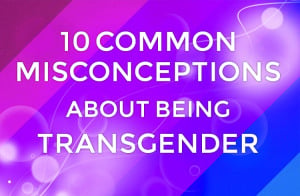
Closeup of a person smiling slightly, their head resting on their hand.
I found out I was pregnant sitting on a disabled public toilet in a seaside town in Wales, having stolen a few spare minutes after a music lesson to rush to a pharmacy.
I was barely eighteen, naïve, indestructible, and about to start the final revision push for my last high school exams. I had a place at Oxford University on the horizon. I just needed these final A grades, and I was off to live my childhood dream of studying at Hogwarts—sorry, Oxford—among those dreaming spires and cobbled, medieval streets.
I peed on the test, waited two minutes, glanced at it, and whispered “Oh crap” under my breath to the empty room. There they were, those two little pink lines. (Why are they pink anyway? Do we need gendered handholding at this point? Are there “Man Tests for the Men in your Life” versions in blue?)
My residing memory is of pure, silent dread. I felt numb. It all felt like a bit of a surreal nightmare. It didn’t really feel real. Mostly, I remember feeling annoyed at having another thing to worry about when I needed to focus on my exams.
I think I went into a state of shock.
To book an appointment, I phoned the British Pregnancy Advisory Service from a sheep field. The sheep didn’t seem to have an opinion either way, and it was the only place with mobile signal where I could reliably speak freely without being overheard. They were lovely (BPAS, not the sheep) and didn’t mind at all that I hung up midway through the conversation when I noticed someone walking past with a sheepdog.
I had to wait a few weeks until after I’d finished all my A Level exams to take four connecting trains all the way to Liverpool, to get an abortion at a clinic for free on the National Health Service. I remember thinking it was the first time I’d ever changed trains on my own.
It was the day the world found out Michael Jackson had died. I sat in the waiting room alone, holding onto my carefully packed feelings, watching the world grieving on the TV screen.
A doctor asked me why I was choosing this option, and I blinked, wondering what the right answer was. “I want to go to Oxford,” I offered as an explanation – as if it were obvious that I hadn’t started living yet, that I was just a child with all my dreams ahead of me.
Afterwards, I went home, feeling relieved, confused, and incredibly drained, and got on with my summer.
It was as if nothing had happened.
How was I supposed to process this experience? The only proof when I got home that evening was a nearly invisible, miniscule mark on the back of my hand from a cannula needle (which disappeared after a couple of days) and later, my confused, angry tears. At a beach party for a friend’s birthday, I waded into the ocean shore and left salty tears in the midnight waves, unsure in my constricted, teenage sense-of-self how to process the emotional turmoil I experienced.
I was eighteen and overwhelmed with a sense of fear and isolation. I thought that if I confessed to my secret, I would have my dreams snatched away from me. I kept it to myself and didn’t tell the people I’m closest to: my family. In that moment, I couldn’t face family reactions and disappointments. I had to put my own oxygen mask on first.
I was also conscious that my sisters were in the middle of important school exams, too, and I didn’t want it to affect them. I wanted to limit the pain of my unwanted pregnancy.
It made me a stronger, more resilient person. Facing the disruption and emotion of my unexpected pregnancy as a teenager has helped me find strength to tackle other hurdles life has thrown at me. I couldn’t have made the decision that was best for me if I’d had their emotional support at the time, as contradictory as that sounds. I think I would have crumpled under the weight of their kindness.
There’s this horrible trope in the right-wing media about the regretful post-abortion woman. It makes a good storyline. There isn’t much narrative potential in a story about a woman who finds out she’s pregnant; makes up her mind calmly, carefully, and swiftly; has an abortion; and carries on with living her life.
Those stories are rather boring for entertainment purposes. But they are also often true.
It encourages us to think that if we feel anything after an abortion that must mean we regret our decision and our actions. It erases our experiences and our emotions and turns us into a political point-scoring debate.
This isn’t fair.
We need to have the right to choose without being forced to prove our continued lack of emotional turmoil in our decisions. I wish someone had told me this at eighteen. I thought that if I showed any difficult emotion, this would somehow encourage the idea that I’d made a mistake in putting myself first and foremost.
An abortion can be difficult; it can also be easy. The decision may take a while or an instant. It may be heartbreaking or positive. It may be all of these at once – confusing and empowering and heartbreaking. These are all valid.
Don’t listen to the political debates: Your body is yours and isn’t the space for politics. Feel what you need to feel. Embrace yourself and your own experience. No experience is the same, and no one processes life in the same way! We can embrace our choices and know that we made the best decision, but we don’t need to prove a lack of an emotional reaction in order to prove some apparently necessary lack of regret.
After all, the whole experience can be disruptive. You can be swinging through life feeling indestructible and then all of a sudden: surprise! You’re facing this whole new experience you didn’t expect to have, changing your body and upsetting your hormones, even rewriting your sense of identity: now I’m a person who has been pregnant.
It’s okay to feel jolted and confused. You might even feel a loss of control over your body.
Once you knew it, you believed in its strength, infallible, indestructible, and reliable; an unexpected pregnancy can upset that confidence. Maybe the birth control failed, your body failed you, or perhaps you didn’t take as much precaution as you think you should have. It’s okay if that confidence in your body and in yourself takes time to reblossom.
And in these times of doubt, confusion, and frustration, self-care can be your friend.
Give yourself time to process this. You might be overwhelmed or underwhelmed emotionally. But don’t let anyone dictate your reactions to an incredibly personal process.
Remember: Everyone’s emotional experience will be as unique as we all are. But in case you need them, below are some practical tips for self-care before, during, and following an abortion:
1. Knowledge Is Power
You have options.
In the UK, BPAS is a good place to start. There are two main options, with the details differing slightly depending on how far along you are: a medical abortion (also called a chemical abortion or the abortion pill) and a surgical abortion.
In a medical abortion, you are given two pills, which will cause period-like cramping, pain, and bleeding, usually starting a few hours after taking and lasting for a few hours. This might be a less invasive option as you can be at home whilst it happens.
For the surgical abortion, you are sedated or asleep (via a cannula needle in your hand) to undergo a minor procedure. If you’re traveling a long way, this can be an easier option: You will wake up in a recovery area, and it will all be over, avoiding most of the pain.
I chose this option and went home feeling physically fine. When I woke up after the general aesthetic, it was all over and done with. Afterwards, you can feel quite drowsy from the sedation for a few hours. Choose the option that is best for you and your circumstances.
2. Bring Along a Distraction
I wish I’d remembered to bring something with me for distraction: I felt frozen in my seat with nothing to do.
You may be waiting around for quite a while on the day of the procedure or have to travel far, so it can be helpful to have some comforting music to listen to, an easy puzzle book, a coloring book, or a gripping novel to read.
You might not want to use them. Maybe you’ll feel engrossed in people watching instead. But it’s nice to have the option there, in case.
Or, if you feel up to it, bring along a close friend for company and support. They usually won’t be able to be there during the procedure, but can take care of you before and afterwards.
3. Document the Day
I destroyed every possible proof that my abortion had happened, for fear of getting found out.
I wish I’d embraced the experience as my own, as I have with medical procedures since: such as writing a tongue-in-cheek running commentary (in a notebook or an app), or by sending a Snapchat to a friend.
Take selfies to take back control of your body!
Erasing all evidence won’t make it easier to process. It’s not necessarily a pleasant experience, but acknowledge and accept it in your own way. Make this experience yours and use humor if it helps.
4. Make Yourself a Self-Care Package
Grab your hot water bottle to ease the soreness, a pile of feel-good films to have a good laugh or cry if you feel like it, some tasty chocolate or your favorite treat, and make some tea.
Stay hydrated to help your body cope physically with what’s it been through.
Get into comfy PJs and snuggle up – and look after yourself.
5. Soak in a Long Shower or Bath
If you go for the pill option (which is usually the case for early pregnancies before ten weeks), the pain might hit you quite suddenly.
And for some, it can help to have a relaxing bath or warm shower to ride through it.
6. Move and Stretch
Moving around, stretching, or doing yoga poses can help with the pain as well.
Try cat pose or child’s pose.
7. Reach Out to People
Talk to someone if you feel up to it.
A supportive friend, family member, a peer supporter or counselor, or whoever you feel comfortable talking with.
You don’t have to be feeling emotional at all: If something unexpected happens in our lives, we usually talk about it, whether it’s positive, negative, or neutral.
Unwanted pregnancies and abortions are so often kept quiet, seen as something that shouldn’t be talked about. This is even more of a reason to talk about it!
Immediately afterwards you might feel a sense of relief or an anti-climax. This may mean you may want to be by yourself for a bit, or you might want to have close friends surrounding you.
Do what feels right for you and adjust your expectations as your needs change.
***
These are only suggestions of course; you know how best to care for yourself. Give yourself some space and don’t be hard on yourself. You might not react the way you expected to react, and that’s okay.
Cry, laugh, marvel at your body’s power. We all process difficult experiences in unique ways. Chances are, you will already know several people who’ve gone through an abortion, who might have kept in secret or shouted it from the rooftops.
Everyone’s story will be different. Embrace yours.
[do_widget id=’text-101′]
Elinor Austin is a writer, researcher, and editor based in Oxford. She is currently completing a PhD at Oxford University, where she is studying intercultural exchange and perceptions of temporality in twentieth century Paris. She can be reached at [email protected].
Search our 3000+ articles!
Read our articles about:
Our online racial justice training
Used by hundreds of universities, non-profits, and businesses.
Click to learn more




















